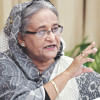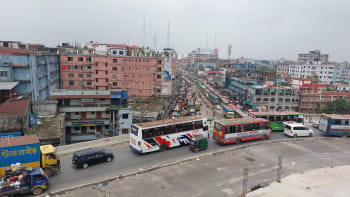Focus on the Ability
Millennium Development Goals (MDGs) set by the United Nations (UN) in 2000 could hardly fulfil its pledge to ensure the rights of people with disabilities. As a result, disability rights activists from across the world raised their voice to bring a change in the policy so that the tendency of making empty promises could not be repeated in the draft of the Sustainable Development Goals (SDGs) which will be in effect for the next 15 years, that is until 2030.
And the most hopeful thing is that their recommended changes have finally been adopted in the SDGs. It is a historic turning point for people with disabilities. Since from now on, the signatories of the SDGs will have to include disabled people in their development policies from which they have long been excluded. It is obviously massive progress, nonetheless, that rights activists across the world, especially those who have been working in the developing or least developed countries, are eagerly waiting to see its tangible implementation. From our observations we have learned that people of developed countries always enjoy the maximum benefits from any welfare plan adopted by the UN.
|
Disability is included in the following SDGs: Goal 4: Guaranteeing equal and accessible education by building inclusive learning environments and providing the needed assistance for persons with disabilities Goal 8: Promoting inclusive economic growth, full and productive employment allowing persons with disabilities to fully access the job market Goal 10: Emphasising the social, economic and political inclusion of persons with disabilities Goal 11: Creating accessible cities and water resources, affordable, accessible and sustainable transport systems, providing universal access to safe, inclusive green public spaces Goal 17: Underlining the importance of data collection and monitoring of the SDGs, emphasis on disability disaggregated data |
But why can't we extract the best out of these humanitarian initiatives? We have a common tendency to point fingers to the apathy of our lawmakers. However, there are examples in the world which can help us to think more positively and differently. When asked about what actually changed the lives of the disabled people in the USA, whether it is the enforcement of Americans with Disability Act (ADA) by the State Department or positive response from the citizens towards people with disabilities, Judith E Heumann, Special Advisor for International Disability Rights, Department of State, USA, says, "Definitely the ADA was a key issue but no doubt that if the citizens could not understand the significance of the act, our initiative would not have been so successful. ADA helped us to portray the rights of the disabled people but if people would not recognise it and cooperate with us, it would have been very difficult for us to enforce the act."
However, in Bangladesh, the scenario is quite depressing. We have good policies and some sympathetic policymakers who also feel (at least that's the impression we get) the necessity to ensure the rights of disabled people, but are we, the common people, conscious enough about this important humanitarian issue?
The answer is written in every public place of our metropolitan cities and districts. There is no visible facility for people with disabilities in public places such as streets, footpaths, parks, railway stations, etc. In many areas, disabled people are treated as lunatics, fools and burdens to society, for whom begging is the only means of income. In most educational institutions, even the reputed public universities of Bangladesh, there are no ramps for students with disabilities. As a result, students cannot use their wheelchairs and have to move around their own campus with the help of another person. In Jahangirnagar University, it is commonly seen that ramps reserved for students with disabilities are occupied by the parked private cars of professors, although there are significant numbers of disabled students in that university. Not only in Jahangirnagar University, this unfortunately is a common scene in most places of our country.
Like the USA, we have good policies, and our Disability Welfare Act is not that outdated either. However, we are still lagging far behind in changing our attitude towards these people. If university professors, the most educated people of our nation, show such level of reluctance to recognise the rights of people with disabilities, what can we expect from the people en masse?
After such development with the SDGs, we are now expecting our government to ensure inclusion of the rights of the disabled in development policies. Therefore, it is high time to maximise our efforts to ensure the full implementation of these policies in our country. Our media, social organisations, government officials, rights groups and all other stakeholders must come forward to sensitise people by focusing on the abilities of people with special needs. They should realise that people with disabilities are not actually "disabled". Rather they have potential, they have talents and they can contribute to our society like any of us, provided that we come forward to cooperate with them by recognising their special needs.
The writer is the founder of Physically Challenged Development Foundation and a fellow of the Atlas Corps.

 For all latest news, follow The Daily Star's Google News channel.
For all latest news, follow The Daily Star's Google News channel. 








Comments